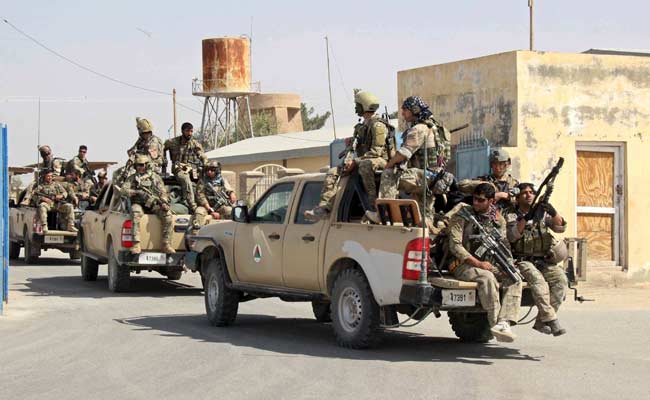"The (Taliban) from now on does not recognise Tolo and 1TV as media outlets but designates them as military targets due to their disrespectful and hostile actions," the group said in a statement.
"No employee, anchor, office, news team and reporter of these TV channels holds any immunity."
The statement said the move was in response to their recent reports claiming that Taliban fighters raped women at a female hostel in Kunduz, after the group briefly captured the city on September 28.
The Taliban rejected the reports, saying they were examples of propaganda by the "satanic networks".
In a recent scathing report, Amnesty International also accused Taliban fighters of gang rapes and mass murder during their Kunduz occupation.
Kunduz was the first Afghan city to be overrun by the militants since they were toppled from power in 2001.
Journalists from the two channels have been extensively reporting on the progress of Afghan forces in retaking the city.
The Taliban urged people to "strongly boycott" the two channels.
Saad Mohseni, an Afghan media mogul who heads Tolo, said his network would not be deterred by the threat.
"Proud to say that our people will always report without bias and fear," Mohseni said on Twitter.
"We will not be intimidated by any group."
Independent media outlets, banned by the Taliban during their 1996-2001 rule, have mushroomed in the war-torn nation in recent years and hailed as one of the bright spots in efforts to foster democracy in the country.
But despite their rapid growth in the post-Taliban era, they face several challenges that threaten to undo the progress made over the past decade.
Human Rights Watch in January warned about growing violence and intimidation against journalists in Afghanistan by Taliban insurgents, warlords and the government.
More about:
















































